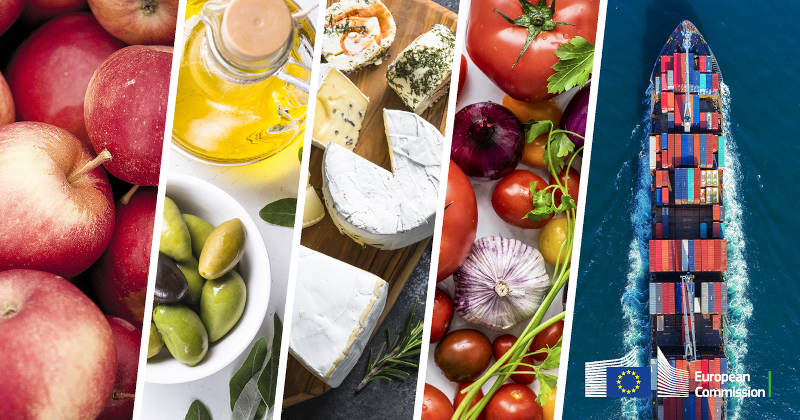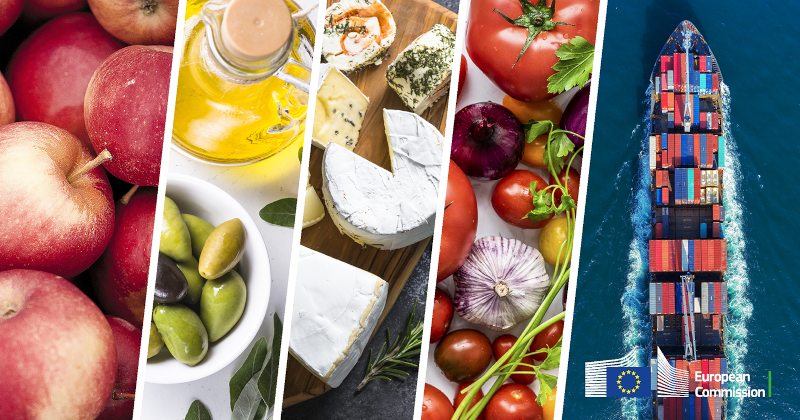
Latest EU agri-food trade balance remains higher than last year

In April 2024, the EU agri-food trade surplus reached €5 billion, still 4% higher than in April 2023, despite a reduction of 25% compared to the previous month. Exports reached €19.8 billion, mainly due to increased prices of olives and olive oil. Imports represented €14.8 billion. Close to 45% of EU imports is composed of a few product categories: coffee, tea, cocoa, spices; fruit and nuts; and oilseeds and protein crops. These are the main findings of the latest monthly agri-food trade report published today by the European Commission.
Exports
EU agri-food exports reached €19.8 billion in April 2024, close to their value of the previous month but 10% higher than April 2023. Cumulative exports since January reached €77.8 billion.
With an increase of €829 million, exports to the United States increased the most, a result largely explained by the high price of olives and olive oil. These products are driving total EU agri-food exports with an increase of 62% in value compared with 2023.
Overall, the EU exports a variety of products. Cereal preparations and milling products, dairy products, and wine and wine-based products represent 25% of the EU total agri-food export value. In terms of volumes, exports of sugar and isoglucose doubled compared to the same period last year, while exports of cereals went up by 2.6 million tonnes.
Imports
EU agri-food imports reached €14.8 billion in April, a 10% increase from the previous month mainly explained by the high prices of cocoa. Cumulative imports from January to April 2024 are worth €54.9 billion, stable with the same period in 2023.
Imports of cereals had the largest reduction, with a decrease of €1.5 billion (-33%), due to reduction in imported volumes and world prices. A similar decrease worth €1.3 billion was observed for oilseeds and protein crops because of lower prices.
Côte d’Ivoire and Nigeria benefitted the most from higher EU import values of cocoa. Compared to 2023, the EU reduced its imports from Indonesia (mainly palm oil) and from Australia (mainly rapeseed).
More insights as well as detailed tables are available below in the latest edition of the monthly EU agri-food trade report.
25 JULY 2024
Monitoring EU agri-food trade: developments in April 2024





